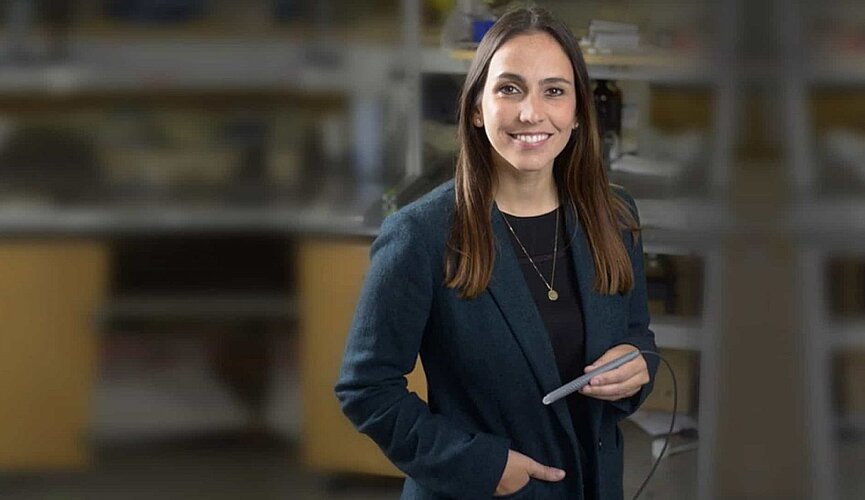
14.04.2021
Offering a fast, efficient and low error detection test for the corona virus is the objective of the study ‘Multicentric validation of COVID-19 diagnostic and prognostic biomarkers using the new MasSpec Pen analytical pen and mass spectrometry’. Developed by the Mackenzie Presbyterian University, in São Paulo, together with the São Francisco University (USF), in Bragança Paulista, and Texas, in the United States, the project is one of those present in the final result of the Coordination Epidemic Combat Program for the Improvement of Higher Education Personnel (CAPES). The work intends to adapt to the virus detection procedure a pen that identifies tumors immediately during cancer surgeries, without needing a biopsy. The scientist responsible for the invention of the equipment, Lívia Eberlin, is a professor at the University of Texas and one of the researchers of the project. In the US, it tests the efficiency of the pen. The samples used in the research are collected in two hospitals in Bragança Paulista and sent to the USA. “In cancer surgery, the pen releases a drop of water when it comes in contact with the surface and identifies in the mass spectrometer (material connected to the pen that shows the images) if the tissue is infected, with a red light, or healthy , green light. The process will be the same for the coronavirus ”, explains Marcos Eberlin, project coordinator and professor at the Graduate Program in Nanomaterials Engineering and Applied Chemistry at Mackenzie. Marcos's former student, Andréia Porcari, a professor at the USF, leads the collection work in the interior of São Paulo. For her, CAPES 'support will be “fundamental in bringing 14 fellows to the project”. One of them is the chemist Alexandre Varão. In his master's degree, at the Federal University of Western Bahia (UFOB), the student developed an analytical method to quantify thallium, a toxic and abundant material in Barreiras (BA) - city where he studied - in the organism. “Despite being in Health Sciences, the final objective of the study has everything to do with my training, it is an analytical method to identify COVID-19. And the scholarship is what will allow me to focus on that ”, he says.
Program to Combat Epidemics is a set of actions to support projects, research and training of high-level human resources to face the pandemic of COVID-19 and themes related to endemics and epidemics, within the scope of graduate programs of masters and doctorate in the country. The Program is structured in two dimensions: Immediate Emergency Strategic Actions and Emergency Strategic Actions Induced in Specific Areas. In three calls for proposals, 109 human resources research and training projects were selected, with the involvement of more than 1,300 researchers from Brazilian and foreign universities. The projects will study themes related to Epidemics, Drugs and Immunology and Telemedicine and Analysis of Medical data.
CCS / CAPES
To read the full text, click here.
![Universidade Presbiteriana Mackenzie [Universidade Presbiteriana Mackenzie]](/fileadmin/CONFIGURACOES/DEFAULT_21/Resources/Public/Template/img/logo/universidade_mack_v2.svg)